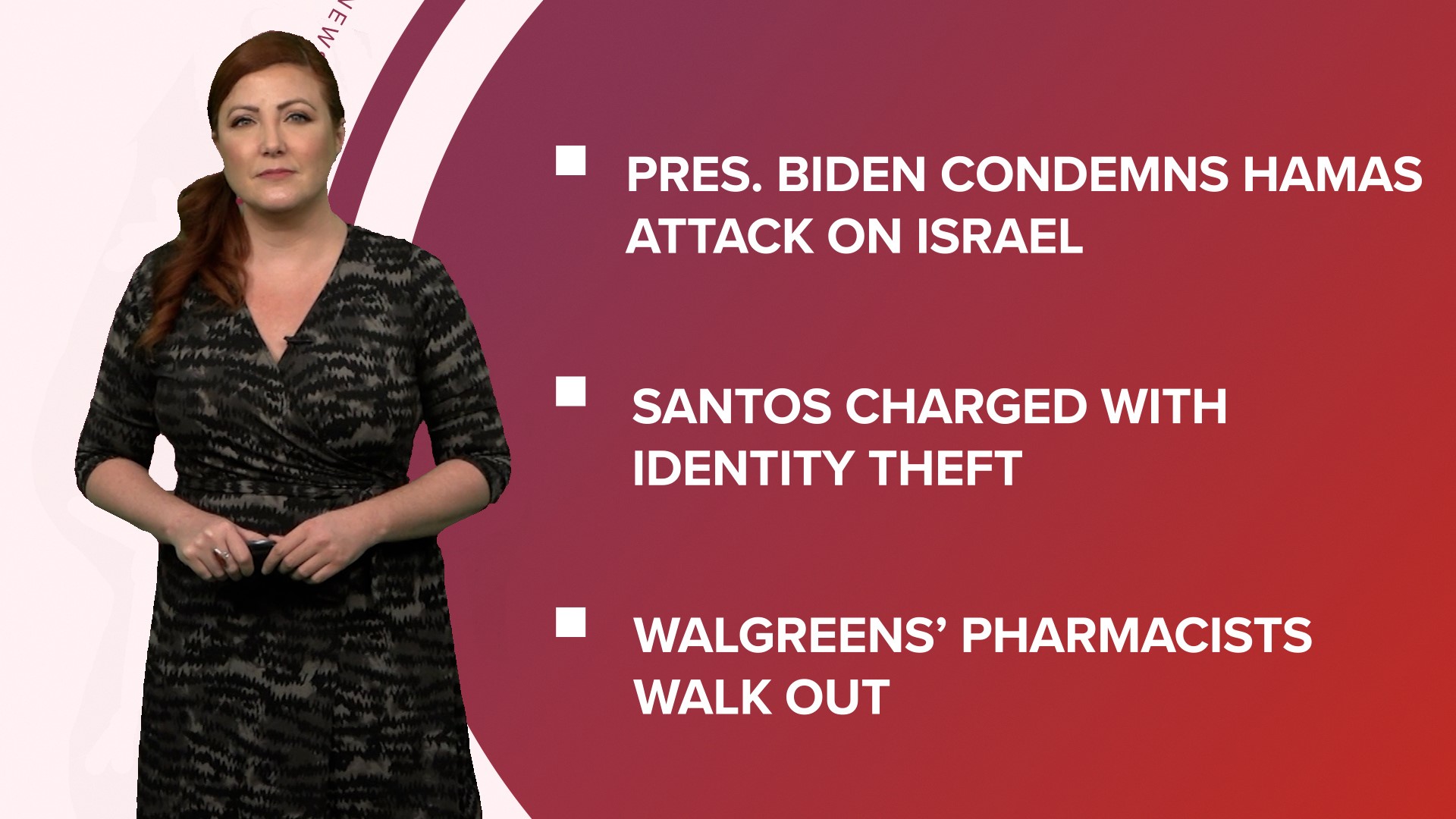CALIFORNIA, USA — This story was originally published by CalMatters.
Gov. Gavin Newsom vetoed a bill that would have given grocery store workers who are laid off as a result of a merger or acquisition a week of severance pay for every year of their service.
The veto, announced Sunday night, comes after the governor signed two other grocery worker protection bills . Advocates have been pushing for the measures since last fall, when Kroger and Albertsons announced plans for a massive merger. The $24.6 billion deal involving two of the largest grocery chains in the United States faces antitrust scrutiny but, if approved, it could happen in early 2024.
Newsom said he vetoed the bill — Senate Bill 725 — because other laws already protect these workers.
He cited the state’s Grocery Worker Retention law, which since 2016 has required companies that merge or buy another grocer to retain existing workers at least 90 days, and the federal Worker Adjustment and Retraining Notification Act, which requires companies with 100 or more workers to give them 60 days notice before mass layoffs.
He also noted that affected workers could tap unemployment insurance.
“While the goal of limiting the disruptions caused by grocery mergers and acquisitions … is laudable, existing law already provides protections for displaced workers,” he said. “The additional obligations in this bill are unduly prescriptive and overly burdensome.”
California could be among the states most affected by a Kroger and Albertsons merger.
Kroger operates 233 stores under the Ralphs, Food 4 Less and Foods Co brands in California, and Albertsons operates 579 stores under the Albertsons, Safeway, Vons and Pavilions names, according to a report by the Los Angeles research group, Economic Roundtable.
Counting merger’s costs
In Los Angeles and Orange counties, 115 of 159 Albertsons stores are located within two miles of a Kroger store. The merger could result in 5,750 jobs lost in the Los Angeles region, according to the report.
The union that represents many California grocery workers is raising alarms about the potential layoffs. The United Food and Commercial Workers Western States Council said in a statement:
“A merger between these two companies could result in large-scale layoffs for workers, grocery stores closing down, particularly in food deserts and rural areas, increasing food costs, and a reduction in a variety of products, including seasonal, organic, and climate-friendly plant-based foods for consumers,”
The companies denied that, saying no “frontline” employees would lose their jobs, because the companies plan to sell hundreds of stores to C&S Wholesale Grocers, which has agreed to maintain store jobs and bargaining agreements and may use the Albertsons name in California.
Some grocery workers said they would feel more secure with legal protections.
Judy Wood, a cake decorator at Albertsons who has worked in grocery stores for 36 years, said she feels let down by Newsom’s veto.
“We were deemed essential workers during the pandemic and we stood behind our governor at that time,” she said.
“We kept the food going to people if they needed it and we stood on those frontlines. We were subjected to COVID all the time. We were there for him during that time … but he’s not there for us now.”
Wood, 65, said she’s nearing retirement and plans to leave California because living here is hard on her $21.02 hourly pay.
‘Essential heroes’
State Sen. Lola Smallwood-Cuevas, the Los Angeles Democrat who authored SB 725, said the governor’s veto is disappointing.
“Without our bill, it leaves essential workers vulnerable to a potential merger, as a vast majority of these workers are already struggling to make ends meet for their families,” she said.
Hours before the veto, the United Food and Commercial Workers praised Newsom for signing two companion bills to strengthen protections of grocery store workers.
Assembly Bill 853 will require grocery or drug store companies to notify the state attorney general 180 days before finalizing a proposed merger or acquisition, and to submit an impact analysis of the deal. The analysis would include effects on community “food deserts,” prices, the supply of experienced grocery workers, as well as unemployment, wages and benefits.
“Grocery workers have seen the effects of mergers and acquisitions in the industry — from job loss to centers of their communities going dark,” said Todd Walters, president, UFCW Local 135 in a statement. “AB 853 will give California’s decision makers the information needed to know just how proposed mergers in the grocery and drug-retail industries will affect their lives and can make an informed decision on the impact of mergers on our state.”
AB 647 will strengthen the state’s existing Grocery Worker Retention Law, expanding its 90-day retention provision to include warehouse workers. And it includes stronger enforcement mechanisms, including giving grocers 33 days to resolve a violation before a worker can sue.
Mark Ramos, president of the United Food and Commercial Workers Western States Council, said he’s grateful Newsom signed the two bills but worries the veto will mean displaced workers won’t have enough money if the merger goes through.
Noting that Newsom once called grocery workers essential heroes, he added, “It makes me wonder, are heroes disposable?”
WATCH ALSO:

